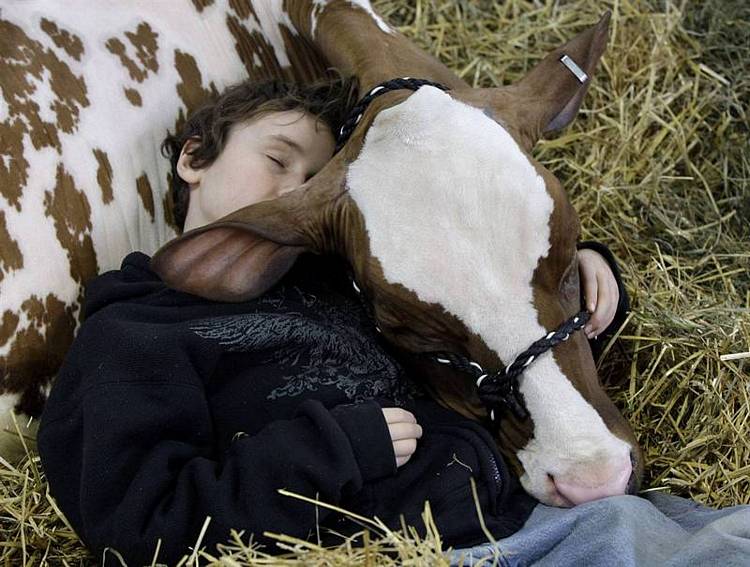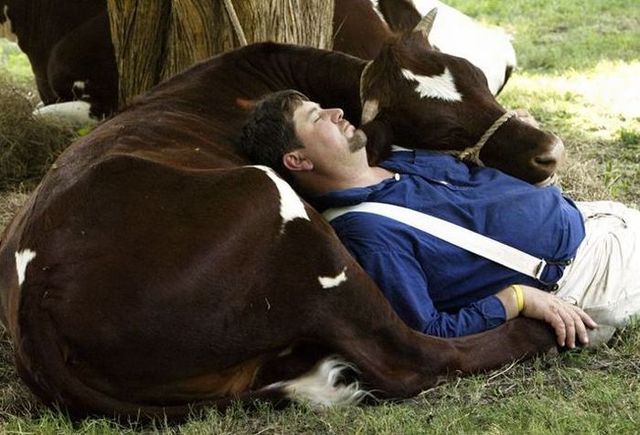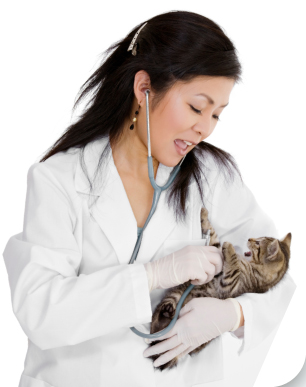Home How we treat different medical problems in pets; What to Expect FoxNest Hospital About our No Kill Shelter
There is a complete site map at the bottom of this page
The Human-Animal Bond
Benefits and Responsibilities
On This Page:
This is a subject very dear to me.
It's about the wondrous relationship that can occur between people and animals
It's about our responsibilities as pet owners and as citizens.
Some introductory comments and a listing of the benefits of owning a pet
Comments about the responsibilities of owning a pet to include what I call
"The Ten
Commandments" of Responsible pet ownership
Thanks,
Roger Ross, DVM
On Other Pages about this topic:
There is a complete site directory at the bottom of the page
The Benefits Of Being A Pet Owner
Animals...especially domesticated pets...help tremendously in satisfying our need for unqualified love and acceptance.
What a pleasure to come home to a wagging tail and a big wet kiss. Or a purring and a rub. Or a neigh and a knicker.
How purposeful it makes us feel to provide care, food, and shelter to creatures that trust us and depend on us. How appreciated it is.
How critical it is to our emotional well being and ultimately for our physical well being to be loved.
When the world turns a cold shoulder to us.
For those of us without loving mates, family, or close friends.
And even for those of us with good family relationships who enjoy good friends and the respect of their community, but who simply have to compete in a ruthlessly competitive society...
How nice it is to have a cat sit on your lap.
And I don't know how to raise boys without a dog
There are lots of websites, professional studies and conferences, and books devoted to our relationship with pets and animals.
So rather than dwell deep into the benefits of our relationship as humans with animals, I'm simply going to list them. My sources are various articles, books, and so forth...but realize this kind of stuff is what is known as "soft science"...some of the claims might be difficult to prove and the results are open to interpretation.
And, at least for the purpose of this site...where we are celebrating the wonderful aspects of our relationship with animals...we will be ignoring the darker side of that relationship; the fact that we humans use animals for labor, sport, food, products, and sometimes abuse.
Whether you think of it as God's world or the world of Nature, the interaction among and within species is pretty complex. Real life interactions between humans, between one animal and another, and between humans and various types of creatures can be and often are brutal, practical, and cruel. But they can also be noble, affectionate, caring, and self-sacrificing.
These pages on this site about The Human-Animal Bond are devoted to wonderful parts of our relationship. Please enjoy, and once again, ponder the implications which seem to me to underscore what our religious leaders have been teaching us for generations: It's not the material world that brings satisfaction, but rather love and kindness in all it's many forms.
God Bless, Roger Ross, DVM
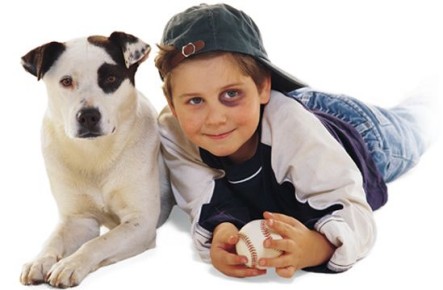

 | ||||||
Website Directory
Home The Human-Animal Bond The History of Veterinary Medicine About our No Kill Shelter The FoxNest Veterinary Hospital
"What To Expect When You Go To The Vet"
if your pet should have a problem with ...
To include Femoral Head Removal, Hip Dysplasia, Anterior Cruciate Ligament Injuries, Panosteitis, Radiographic Demonstrations, Disc Disease, and Bone Surgery
Strokes, Vascular Diseases, Anemias, DVT, DIC, Blood Parasites, Rat Poison, & Bleeding disorders
Cardiology Heart disease in Cats, Cardiac Hypertrophy, Valvular disease, Cardiac Insufficiency, Congestive Heart Failure, Heartworm Disease, and a little history about the milestones in treating heart disease
Cats: general information page and directory of diseases and problems specific to cats including vaccine recommendations, leukemia, feline viral infections, feline upper respiratory disease and cats that just aren't feeling well.
Dermatology: Skin problems including allergies, rashes, bacterial infections, and itching. Hair Loss, Yeast Infections, Hormonal Problems
Heart disease; Cardiac diseases, vascular diseases, stroke, & heartworms
Hormone Diseases: Diabetes, Thyroid Disease, Cushing's Disease or Hypercortisolism, Addison's disease or Hypocortisolism, Pancreatitis, obesity as a disease
Infectious Diseases Colds, Distemper, Parvo, Leptospirosis, Bruceellosis, Panleukopenia, Feline AIDS, Leukemia, Hepatitis, Kennel Cough, Ringworm, Rabies, FIP, Canine Herpes, Toxic Shock Syndrome, & More
Intestinal problems: diarrhea, constipation, torsion, indigestion, and gas. Also pancreatitis, vomiting, esophagitis, colitis, parvo and other types of dysentery
Metabolic Diseases: Diabetes, Thyroid Disease, Cushing's Disease or Hypercortisolism, Addison's disease or Hypocortisolism, Pancreatitis, obesity as a disease
Neural Problems and Diseases: Epilepsy, Rabies, Distemper, FIP, Paralysis, Tetanus, Seizures, Disc Disease, Toxoplasmosis & others
Parasite Problems; Fleas, Ticks, Heartworms, Intestinal Worms, Mosquitos, Lice, Mites, and other welfare recipients
Poisons Snakes, Insects, household chemicals, plants, and foods that might poison your pet
Skeletal-Muscular Problems Arthritis, Fractures, ACL, Ligament Injuries, Disc Disease, Pannus, and many other problems of the bones, muscles, tendons, and ligaments
Skin Problems: allergies, rashes, bacterial infections, and itching. Hair Loss, Yeast Infections, Hormonal Problems
Surgery: Spays, Castrations, Testicle Recipes, Soft Tissue Surgery, Hard Tissue Surgery (Bones), C- Sections, Declawing, Tumor Removal and Cancer Surgery
Other Topics on This Site
Zoonotics: Diseases, worms, and parasites people get from pets.
Includes information about Prescription diets used to treat disease, and a discussion about the pet food industry
Includes information about feline and canine heat or estrus, breeding, C-Sections, pyometra or Infected Uterus, dystocia, no milk, mastitis, & brucellosis
Also newborn care, undescended testicles, and alternative to spaying and castration
WildLife Page: Taking care of baby bunnies, squirrels, and birds. A very funny story about beavers, and other misc information
Our Dog Page: a directory of problems of concern in dogs including parvovirus, distemper, canine herpes, and other diseases
Home How we treat different medical problems in pets; What to Expect FoxNest Hospital About our No Kill Shelter
There is a complete site map at the bottom of this page
According to various studies:
Pet owners have fewer health problems
Pet owners have better psychological well-being
Seniors who own dogs go to the doctor less than those who do not. In a study of 100 Medicare patients, even the most highly stressed dog owners in the study has 21 percent fewer physician's contacts than non-dog owners.
The activity level of seniors who did not currently own pets deteriorated more on average than that of respondents who currently owned pets.
Seniors who own pets coped better with stress.
Pet owners have lower blood pressure, lower triglyceride and cholesterol levels than non-owners.
Companionship of pets (particularly dogs) helps children in families adjust better to the serious illness and death of a parent.
Pet owners feel less afraid of being a victim of crime when walking with a dog or sharing a residence with a dog.
Contact with pets develops nurturing behavior in children who may grow to be more nurturing adults (Melson, 1990).
Pet owners have a higher on-year survival rates following coronary heart disease (Friedman, 1980, 1995).
Medication costs dropped from an average of $3.80 per patient per day to just $1.18 per patient per day in new nursing home facilities in New York, Missouri and Texas that have animals and plants as an integral part of the environment.
Pets in nursing homes increase social and verbal interactions.
Pet owners have better physical health due to exercise with their pets.
Having a pet may decrease heart attack mortality by 3%. This translates into 30,000 lives saved annually (Friedman, 1980).
Dogs are preventive and therapeutic measures against everyday stress (Allen, 1991).
Pets decrease feeling of loneliness and isolation.
Children exposed to humane education programs display enhanced empathy for humans compared with children not exposed to such programs. (Ascione, 1992).
Positive self-esteem of children is enhanced by owning a pet. (Bergensen, 1989).
Children's cognitive development can be enhanced by owning a pet. (Poresky, 1988).
70% of families surveyed reported an increase in family happiness and fun subsequent to pet acquisition.
The presence of a dog during a child's physical examination decreases their stress. (Nadgengast, 1997, Baun, 1998).
Children owning pets are more involved in activities such as sports, hobbies, clubs or chores.
Children exposed to pets during the first year of life have a lower frequency of allergic rhintis and asthma. (Hesselmar, 1999).
Animals seem to help children with autism.
Children who own pets score significantly higher on empathy and prosocial orientation scales than non-owners. (Vidovic, 1999).
Pets fulfill many of the same support functions as humans for adults and children.
People who have AIDS that have pets have less depression and reduced stress. Pets are a major source of support and increase perception the ability to cope. (Siegel, 1999, Carmack, 1991).
And while I have no study to back me up, I'm pretty certain that young people who have a healthy relationship with a dog or horse are less likely to commit suicide. Roger Ross, DVM
More on the Benefits
of the Human-Animal Bond
The following outline-article was written by Dr. Holly Frisby, a veterinarian working for The Drs Foster & Smith Veterinary Services Department. Drs Foster & Smith are famous for selling over the counter veterinary and pet supplies via mail order, but they also have an excellent veterinary information web site much like mine written by vets like Dr. Frisby. I certainly don't want you to leave my site to go to theirs, but it's full of well written articles like the one I copied below. My respects to Dr Holly Frisby:
There are many terms used to describe ways in which animals can help rehabilitate and heal persons with special needs. These include "pet therapy", "pet facilitated therapy", or "animal-assisted therapy".
Pets can help people with a variety of mental, emotional and physical disabilities. Fish, birds, pocket pets, rabbits, cats, dogs, horses have all been employed in pet therapy.
What qualities do companion animals have that make them so therapeutic?
Warm and fuzzy: Animals are warm and fuzzy and alive. Being able to hold and pet another living creature can provide a great deal of comfort.
Nonjudgmental: Pets are nonjudgmental and don't criticize. So what if the new recipe turned out inedible. So what if you accidentally mowed down the rose bush. So what if you made a lousy decision. Your pet will think no less of you. Pets accept us the way we are.
Trusting: Animals are often very trusting and can help build trust in ourselves and others. By watching them we learn we also are dependent and must rely on others.
Unconditional love: Pets can often tell when their owners are sad or upset and respond in an attentive way. It's really quite amazing how they can pick up on a person's emotions.
Listen: Pets are great listeners. They don't interrupt. They don't feel obligated to share their opinions. They are interested in a variety of topics.
Help us feel needed and important: It helps to know we are needed. Adopting an animal from a humane shelter can certainly help you feel that way. A pet's welcome upon coming home from a hard day's work, or even a short shopping trip can be the best part of the day. We may have had a horrendous day at work, or ignored by a store clerk, but our pets are happy to see us. And they help us feel needed as we provide them with food, water, grooming, and exercise
Clowns: Some pets, whether they try to or not, can be real clowns. We enjoy watching them and joining in with the play. We allow ourselves to act much sillier in front of our pets than in front of our friends. Pets do not play to be competitive, but just to have fun, which is refreshing in today's society.
With these qualities, pets can act as co-therapists for a variety of people with special needs.
Developmentally disabled
Children with Down's syndrome and other developmental disabilities can benefit from interactions with animals. Many special education classrooms have a variety of animals, and may have visiting pets as well. The pets can help them learn about nutrition, gentleness, following instructions, and how to care for other living things.
Mentally ill and persons with psychological disorders
The Quakers initiated the use of pet therapy for the mentally ill in the 18th century. Hospitalized patients with a variety of psychological diagnoses who have pet therapy respond well and are less anxious.
Pets help build rapport between the therapist and the patient. When the patient sees the therapist with a pet, the therapist already is viewed "safer" in the eyes of the patient. The animals can also sense the needs and respond to persons with mental illness in ways the therapist cannot.
Emotionally ill
Children who are emotionally ill respond to the unconditional and nonjudgmental quality of animals. They feel the animal "listens and understands". In believing the animals care for them, they feel needed, important and loved. They then become capable of taking the risk to trust and love
Physically handicapped
Pets can assist the physically handicapped in a variety of ways. Therapeutic riding is being used for persons with cerebral palsy, muscular dystrophy, multiple sclerosis and others with diminished motor control. It helps to improve their posture, balance, mobility and function. It also provides significant emotional and cognitive benefits. Physically handicapped pets have been terrific role models for persons with physical disabilities. They help the person understand, "if a dog can do it, so can I."
Terminally ill
Persons with terminal illnesses such as cancer, AIDS, and organ failure, and those who are bedridden are less likely to suffer from depression if they have animals around them. The animals bring a level of comfort and support unique to them.
Residents of long-term care facilities
Pets can have positive effects on residents of long-term care facilities. Interest in surroundings, mental health, activity, social interaction and communication are often improved.
Juvenile delinquents and at-risk youth
The use of pets as part of the rehabilitation efforts for children considered to be "at risk" for trouble with the police or school has shown promising results.
Facilities may include cows, goats, horses, dogs and cats on their therapeutic staff. Again, the animals are nonjudgmental and show unconditional acceptance and love. The youth learn responsibility and trust, have someone to talk to, and come to feel needed and worthy. Animals seem to be able to bring out these qualities in the youth almost without effort.
Prisoners
Animals have been used in a variety of prison settings to help prisoners learn confidence and teach them new skills. Again, they become responsible for the welfare of another living being, which can give them a new outlook on life. In one prison, animals presented to the humane shelter are taken to the prison to be bathed and groomed. The prisoners receive a dirty, matted, smelly creature and give back a clean, handsome and much happier animal. There ability to better the life of another living being gives them an improved sense of self-esteem and self-worth. They can then go on and improve their own lives.
As we learn more about the therapeutic effect of animals on people, there will be more and more people who will benefit from contact with pets. They have much to give and offer it freely
Thanks for this great article, Dr Frisby
My comments about "The Flip Side" of the benefits of having a pet that Dr Frisby writes about in the above article; namely the responsibilities of pet ownership are in the column to your left. Please take a look.

In the column to your right, the next article down was written by Dr Frisby summarizing various studies listing the benefits of animal companionship. It's well written and quite interesting.
But there's a flip side to this relationship and the benefits of having a pet.
What are our responsibilities in having a pet?
We can all argue on the extent and degree of how we should take care of companion animals.
We can argue about what should be legally mandated and what should be left to the character of the individual caring for a pet.
As the founder of The Animal Rescue Fund of South Carolina, I'm in the position of caring for hundreds of pets a year who have been neglected and abandoned as unwanted and often uncared for... and I'm in a tiny little town.
All across our country, and other countries too, millions of animals are killed in "humane societies" or left to fend for themselves in situations where most starve or die of injuries, illness and wounds.
In those countries where for several generations concerned and purposeful animal lovers have pushed for responsible pet ownership through laws, cultural education, animal welfare socieities, and the veterinary profession, the problem is much reduced.
In the United States and most other Western societies, pets are now treated in many homes as part of the family; a wonderful situation.
But, even in advanced and prosperous countries of the West, millions of people get a pet for the obvious benefits, but without any plans for the work, time, environment, or money that's involved.
They want the fun, love and affection associated with pets.
And often a pet, especially a dog, is obtained with great visions of it being a well trained side kick ready at any moment to do it's master's bidding and impress all around. People want a heroic and wonder dog like those protrayed in movies and television. Often pets are obtained for immature, frivilous reasons; "It's cute!" "It's adorable!"
Having a heroic, well trained super pet takes alot of time and patience.
Having a pet means cleaning up messes.
Good results takes maturity, character, and more than just good intentions (This is true with most important things in life, and it's why most social - welfare type programs tend to fail, but I'll avoid a political rant here)
I believe that pet owners should be expected to not only offer food, water, and a comfortable, safe place to stay, but also affection, time, and reasonable preventive and needed medical care. In addition, I believe that pet owners should do whatever is necessary to prevent unwanted litters from having to be euthanized.
So,
I've taken the liberty of wrting down what I call the ten commandments of pet owner responsiblilty. They are slightly different than the posters and other more cute listings I have seen.... such as the one in the picture below:
My slightly different "ten commandments" of Pet Owner Responsiblilty:
1. Common sense over frivolous emotional desires: not to get a pet at all if you don't have the appropriate setting, time, or money to devote to a living creature.
2. A safe and comfortable setting.
3. Decent food and water on a regular basis.
4. An appropriate place to eliminate bodily wastes
5. Exercise, play, love, and frequent companionship
6. Enough time and effort spent on training, if you have a dog, to make him or her a joy to be around rather than an aggrivation to everyone.
7. A plan and preparation for those times when you need to leave your pet for extended periods such as vacations, job assignments, funerals, weddings, and so forth.
8. Grooming Care if needed. Pets are miserable if heavily matted or suffering from dry, flakey skin or seborrhea.
9. Neutering: Unless you really plan on breeding your pet and taking on all the extra responsibilities of that project, neutering your pet prevents all kinds of health and anxiety problems for your pet, all kinds of nuisance problems for you and your community such as roaming and biting, and it eliminates unwanted litters. Remember that each and every county KILLS HUNDREDS of pets each month.
10. Health Care. Without vaccinations and treatment for illnesses and injuries, most animals would die at a young age or live in pain and misery. We expect a good responsible pet owner to provide regular veterinary check ups, recommended vaccinations, parasite control, and veterinary health care when injuries and illnesses occur. And now that we know the importance of gum health, we expect good pet owners to provide dental care for their pets on a regular basis as needed.
Yes, taking care of a pet costs time and money. Veterinary care can be expensive. And part of being responsible is being prepared for when things go wrong.
I used to assume most adults new this. But after realizing how half the country seems to vote for government program after program with no clue as to where the money will come from, I'm not so sure.
I discuss veterinary expenses throughout this web site ...as well as pet insurance which is one responsible solution.
Thanks. Please enjoy the rest of the site. Roger Ross, DVM
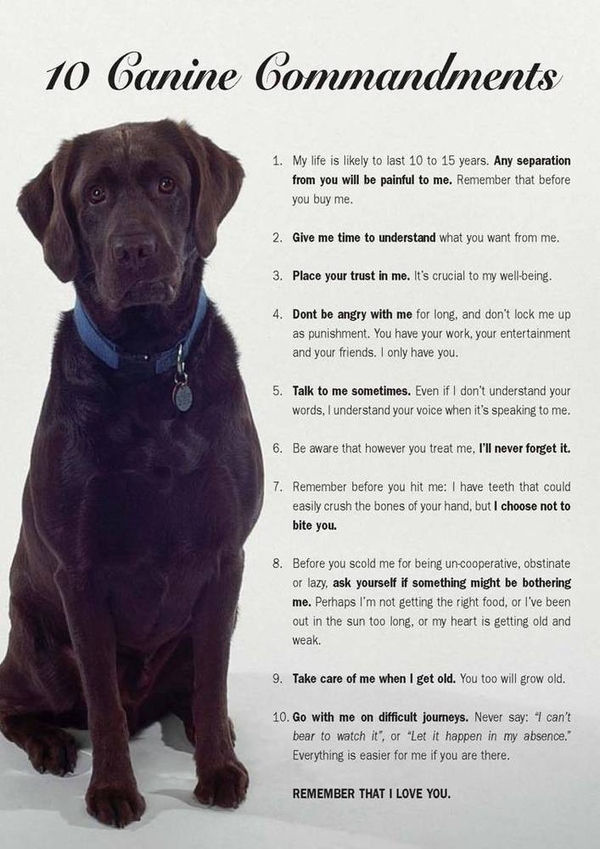
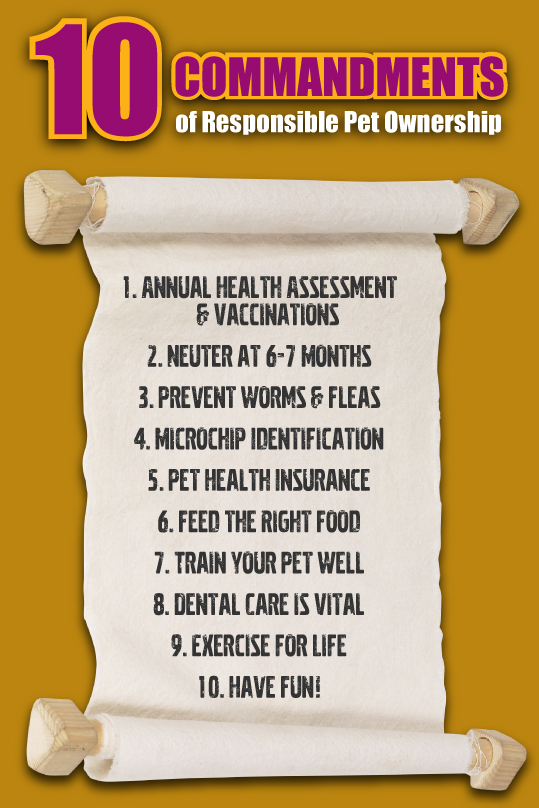
Rescue groups all over the country seem to have a list of like the one above and often titled "The Ten Commandments". I've written my own list in the column to your left.
